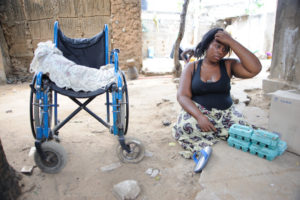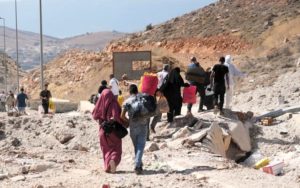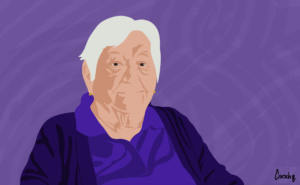Eleanor Davey writes about the history of humanitarianism, including the ethics and politics of aid and the relevance of historical perspectives to current policy and practice. She has been supporting people in detention through grass-roots campaigning, advocacy, and protest.
Sixty-one refugees in Melbourne have experienced freedom for the first time since seeking asylum from Australia more than seven years ago. The refugees, who were released in three waves over two weeks in January 2021, were among the cohort of people transferred from Nauru and Papua New Guinea (PNG) for medical care under the Medevac law that operated during 2019. Unlike other people who were transferred for medical care prior to this new law, the so-called ‘Medevac refugees’ have been confined in hotels. During the COVID-19 pandemic this meant they were cut off from personal contact and access to fresh air.
Mostafa Azimitabar, who published an article with UAI in November, was among the second group to be released. On the day of his freedom, Azimitabar wrote on Twitter: ‘This is the most beautiful moment of my life and one that I would like to share with you all. After 2,737 days locked up in detention – I am free.’ Azimitabar is a Kurdish Iranian musician and has been a prominent voice for refugee rights.
Others have also spoken about their experiences. On hearing of his imminent release, Thanush Selvarasa, a Tamil refugee who has also been detained offshore and in Melbourne, told Refugee Action Collective (Victoria): ‘My mother has been waiting year by year for just one message from me – on Thursday I can finally call her and say “hello mother I’m a free man”. I have been waiting for eight years to tell my mother that. I can’t wait until that beautiful moment, she will be so happy. People sometimes don’t realise the value of things until they lose something in their life, or have it taken from them. I know the value of freedom.’
The relatively large number of people who had their freedom restored in January was foreshadowed by the release of seven refugees in December 2020. Among them was Farhad Bandesh, a Kurdish musician and artist, whose release happened on the day of his birthday, 11 December. In 2019, Bandesh was the subject of punitive treatment after he spoke out about the torturous conditions of hotel detention. Speaking to The Guardian after his release, Bandesh emphasised the power of collaboration between refugees and their supporters in the campaign for justice: ‘We are innocent people and we have some people in the community who are beside us. They walk beside us in this battle and the nightmare will be over, and we will be free and we deserve to be free … My message is resistance brings life, resistance brings freedom.’
Despite hope that these releases herald a change in policy on the part of the Australian government, so far there has been little public indication that this is the case. Some 150 people are still being detained onshore and over 250 more people remain offshore in PNG and Nauru. Many others live in precarious conditions on short-term visas, lacking permanent protection due to an Australian government policy against granting protection to people who arrive by boat even after a formal determination process on their refugee status. The government’s asylum policies were criticised during a session of the United Nations periodic review of human rights in January 2021.
Campaigning continues for the immediate release of all asylum seekers and refugees from detention and exile, including the Medevac refugees as well as others held in Australian detention centres; for those offshore to be brought to live in the community in Australia; and for safe, permanent resettlement to be ensured for all. As Azimitabar wrote, ‘If I am able to obtain my freedom, there should be the opportunity for the others seeking asylum to have their freedom as well. Until all of us are free, none of us are truly free.’
Photo Credit: Mostafa Azimitabar/@AzimiMoz
The views expressed in this opinion piece do not necessarily reflect those of United Against Inhumanity.











